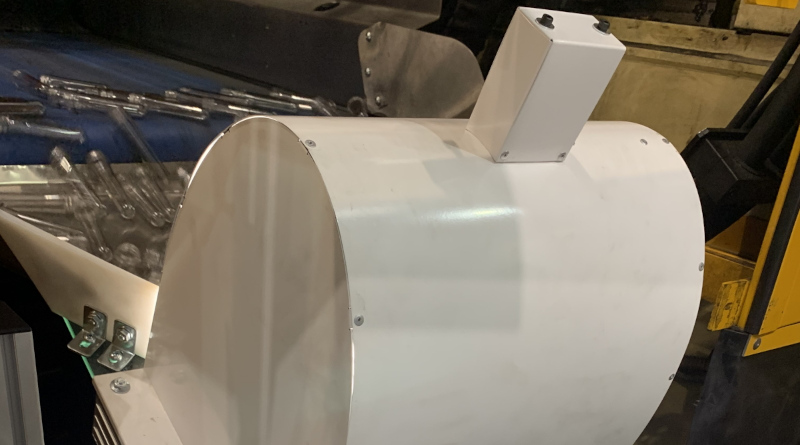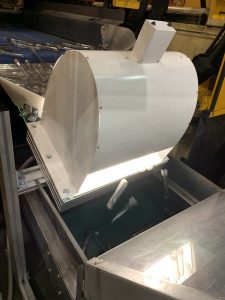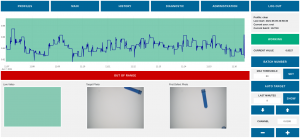Preform colour inspection
Quality assurance developments in the rPET packaging industry
The Lithuanian company Sprana Ltd is a well-known player in the fertiliser industry. After the focus of their analysing technologies was expanded to the plastics industry, their customer Retal encouraged them to develop a PET preform inspection system to assure production quality control on-line. The PET preforms colour inspection system PSIS is designed to enable an automated colour stability check on preforms on the production line as the preforms are being transferred from the moulding machine to holding containers.
According to the 2019 EU Single-use Plastics Directive, plastic packaging manufacturers will need to integrate 25% of recycled plastic in their production process by 2025 in PET bottles and 30% by 2030 in all types of beverage bottles. This not only confirms the stringent requirement to increase rPET concentration in PET preforms but also a need for methods and tools which could improve and guarantee high-quality control and accurate analysis in the production process.
Sprana states that there are still many issues that producers are facing in using post-consumer recycled material. The key challenges in increasing the amount of recyclates in PET preforms are to maintain high product quality and assure the overall performance of PET bottles. Therefore, the quality control of the production process is becoming an ever more crucial issue in the plastic industry. PSIS is designed to enable an automated colour stability check on preforms directly on the conveyor belt as the preforms are being transferred from the moulding machine to the containers.
Common defects when using rPET
Some of the most common defects in PET preforms with increased rPET concentration are different types of inclusions, haziness, and yellowing. Hence, for an upcoming R&D project funded by EEA and the Norwegian Financial Mechanism 2014–2021 Sprana intends to develop a new inspection system that enables the detection of black specks and other contaminations at an early stage of production.
In this project, the company will carry out research and experimental activities in order to improve the quality control of PET preforms in on-line monitoring and analysis and to increase recycled materials concentration in production processes. This is realised by using machine vision and AI technology. Sprana will also develop the system’s prototype, which will be tested and installed on-site. The company states that by optimising and improving quality control of PET preform production, manufacturers will be able to reduce the routine human labour part of the quality assurance process, which is seen as inefficient, time-consuming, and increases the possibility of defective products. Released from routine tasks, staff will instead be able to carry out higher value-added processes and focus on higher quality of the products. During this project, Sprana will be collaborating with local and international partners to carry out the R&D stages and achieve the main goals of the program. In cooperation with Lithuanian PET preform producer Putoksnis Ltd. and Norwegian consulting and projects management company IDN (International Development Norway) Sprana’s objective is to adapt the resulting product/solution in a real industrial environment and to commercialise it in the EU and across world markets.
Overall, the project not only aims to promote the usage of secondary PET resin in the industry and to stimulate the market for rPET trading, but the partnership will also take a further step towards the EU goal of creating the circular economy for the PET plastic packaging industry.



